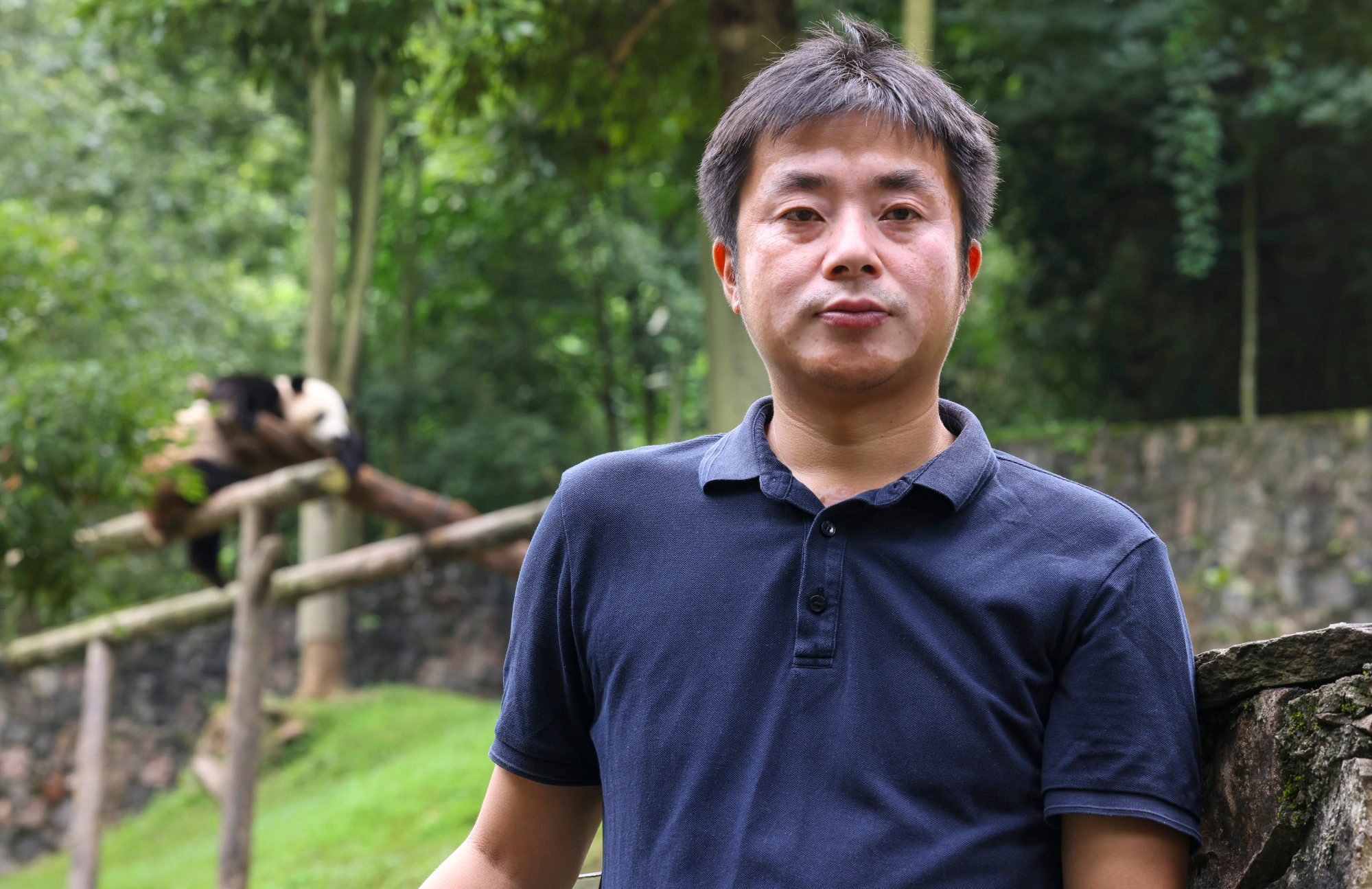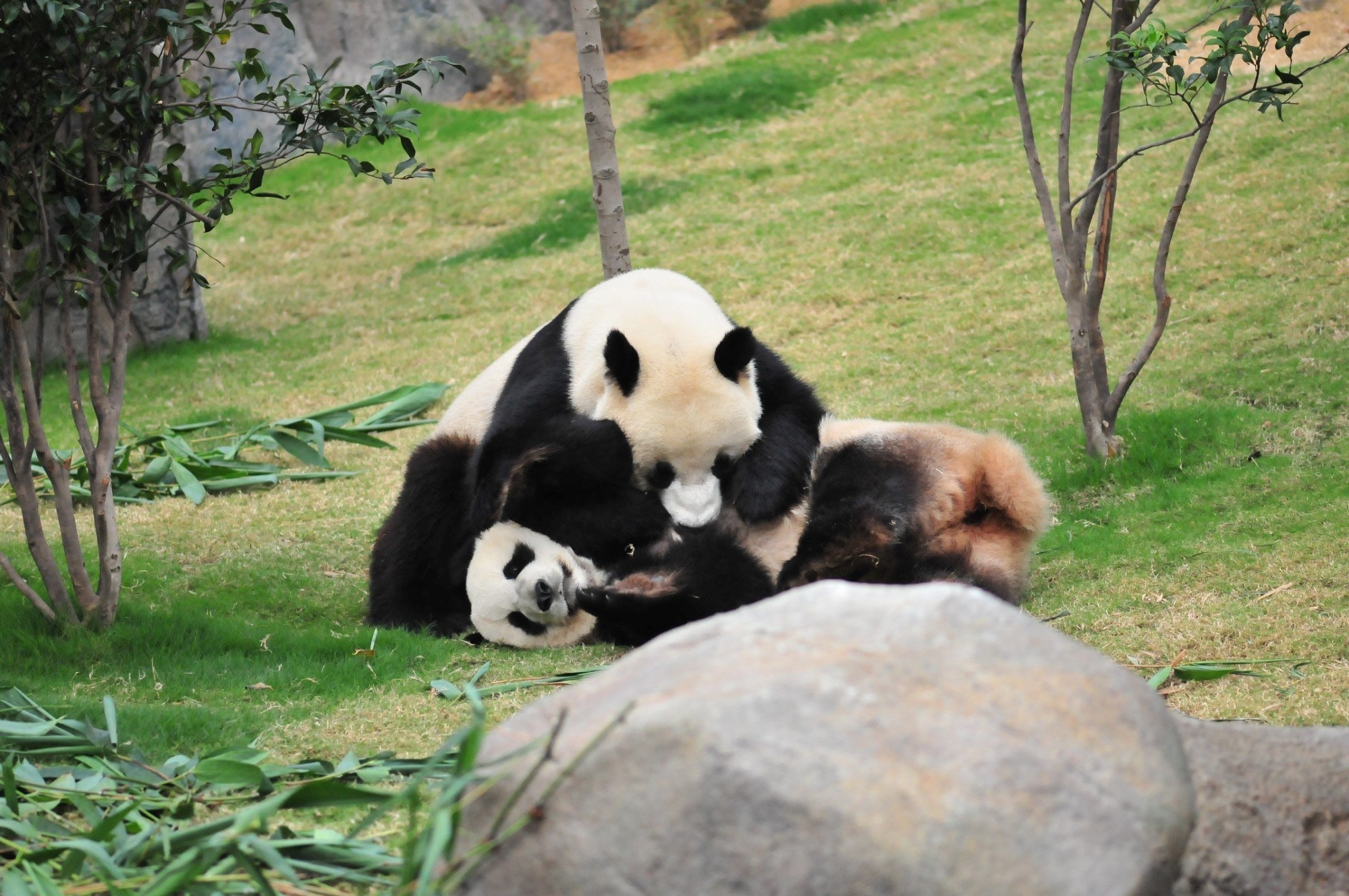
Will efforts to help Hong Kong’s giant pandas Ying Ying and Le Le reproduce bear fruit? Mainland Chinese experts lend a paw to Ocean Park’s breeding efforts
- Specialists from Sichuan province will work with caretakers at Ocean Park to help the two mammals reproduce
- Hong Kong has yet to succeed in reproducing giant pandas following the mammals’ fruitless attempts since 2011
A team of reproduction experts from mainland China have arrived in Hong Kong to assist Ocean Park in its efforts to help the city’s two giant pandas, Ying Ying and Le Le, breed.
The specialists from Sichuan province would work with caretakers at the theme park to help the two mammals reproduce, Huang Shan, the head of panda management at the China Conservation and Research Centre for the Giant Panda’s Dujiangyan base, on Thursday said.
The collaboration would focus on technologies and preparation work involved in the breeding process, he added.

“Breeding for Ying Ying and Le Le is complicated due to a number of factors such as temperature, environment and the lack of available mates,” he said, noting that the species’ breeding season ran from July through September.
He said male pandas living in the wild fought with competitors and only the winners would breed with female counterparts.
An Ocean Park spokeswoman said two experts from the Dujiangyan centre and the Ya’an Bifeng Valley centre arrived in Hong Kong last week.
While the two pandas tried mating naturally and underwent an artificial insemination procedure in March, the spokeswoman said there was no chance of Ying Ying becoming pregnant this year.
“Although Ying Ying has shown behaviours and hormonal changes which are typical of pregnant or pseudo-pregnant giant pandas, unfortunately upon evaluation, it has been confirmed that she will not give birth to cubs this year,” she said.
Both sides exchanged extensive information on husbandry, breeding and healthcare and the park appreciated the mainland experts’ efforts, according to the spokeswoman.
Hong Kong has yet to succeed in reproducing giant pandas following the mammals’ fruitless attempts since 2011.
Ying Ying and Le Le, the only two giant pandas in the city, celebrated their 18th birthday about a week ago. Their age is equivalent to 54 human years.

Huang said the Dujiangyan centre and Ocean Park had exchanged knowledge for years on husbandry and breeding of the species, and explained a caretaker from the park was now receiving training from the research institute.
The centre, which is one of Sichuan’s four panda research institutes, was reconstructed in 2012 with 129 million yuan (US$17.7 million) in funding from the Hong Kong government following the 2008 earthquake that struck the province.
Huang said most pandas were born at the Wolong centre, given the high number of mates.
He added the Dujiangyan centre was home to 41 giant pandas living in a semi-captive shelter, which allowed some to roam around an area of about 2 million square feet.
There are more than 1,800 pandas living in the wild and most are in Sichuan, while about 600 are in captivity in various nature reserves on the mainland.
In May, Ocean Park chairman Paulo Pong Kin-yee told the Post it was seeking a new pair of giant pandas from Beijing following the death of An An and Jia Jia.
Huang said he had no news about the decision.
Ying Ying and Le Le were given to the city in 2007 as a gift from the central government to commemorate the 10th anniversary of Hong Kong’s handover from British to Chinese rule.

